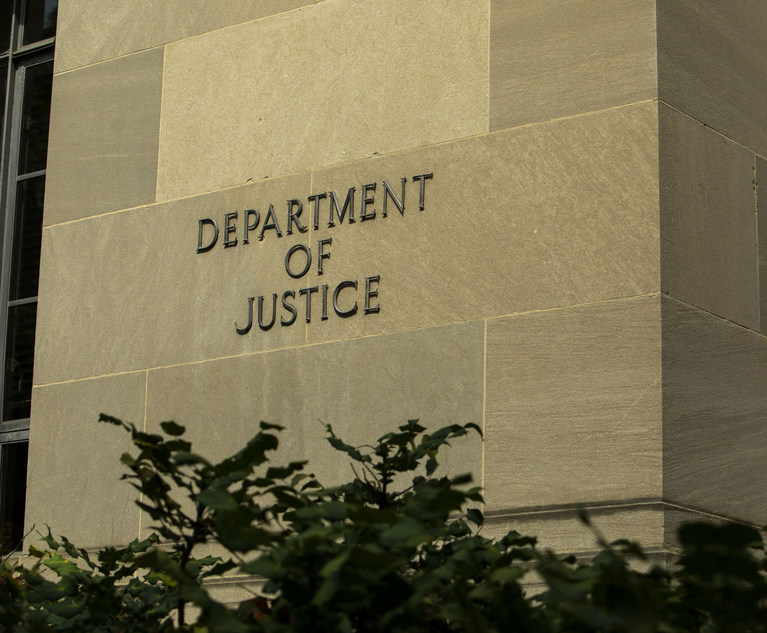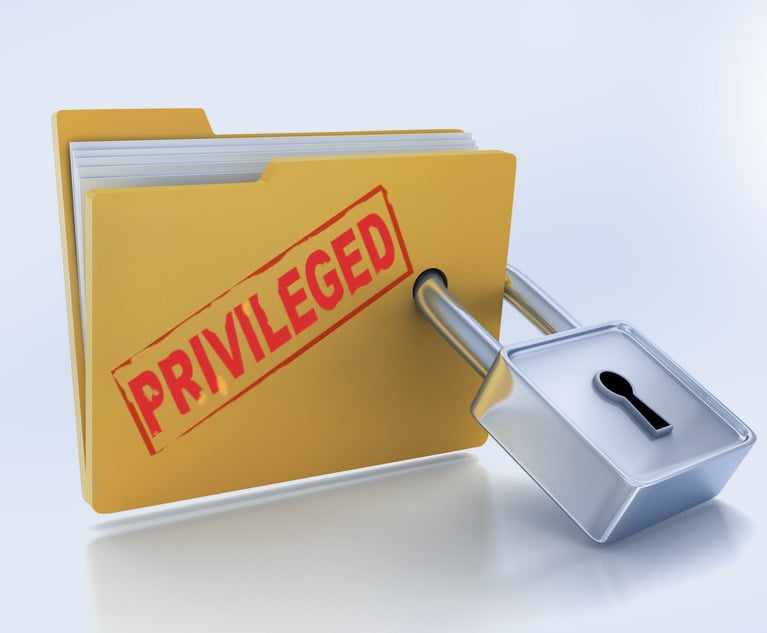Andrey Spektor

August 15, 2024 | New York Law Journal
The Implication of SCOTUS's 'Snyder' Decision and Recent Precedent on Corruption ProsecutionsIn fraud and corruption cases, the Supreme Court and the US government are marching in opposite directions. The DOJ continues to embrace new tools from Congress and the White House—including a newly-passed anti-corruption law—while the Supreme Court has increasingly cut back on the DOJ's broad theories of prosecution. This article examines the implications from the Court's latest opinion, Snyder v. United States, which, if applied to other bribery statutes, could severely limit the DOJ's view that gifts to government officials are no different than bribes.
By Mayling Blanco, Katey Fardelmann, Sarah Perlin and Andrey Spektor
8 minute read

January 12, 2023 | Corporate Counsel
How Far Will the DOJ Go? Individual Accountability in Corporate Criminal CasesWhy should this concern white-collar professionals? In September 2022, the Deputy Attorney General, Lisa Monaco, reminded prosecutors that individual accountability remains the DOJ's "first priority." And there is time pressure imposed on prosecutors: they must bring these charges before or at the time of resolving the investigation with the company.
By Andrey Spektor and Laura S. Perlov
7 minute read

September 14, 2022 | Corporate Counsel
Is Your Company a Victim of a Crime? Why You May Want to Hold Off on Calling the CopsWhen a company finds itself a victim of a crime, its legal team may feel uneasy picking up the phone and calling a local U.S. Attorney's Office. There is often good reason to be careful.
By Anne Redcross Beehler and Andrey Spektor
7 minute read

August 22, 2022 | New York Law Journal
Designing Corporate Structure To Mitigate FCPA Risk in Light of the Second Circuit's Recent OpinionGiven the sparsity of FCPA case law, the recent opinion offers valuable leverage when negotiating a resolution with the government.
By Andrey Spektor
6 minute read

June 30, 2022 | New York Law Journal
The Limits and Implications of the Government's Blunt Tools Against NFTsThe DOJ and the SEC will continue to aggressively pursue what they view as wrongful conduct repackaged for the digital age, and will adapt their legal theories accordingly.
By Ashley Ebersole and Andrey Spektor
9 minute read

March 18, 2022 | New York Law Journal
Five Legal Challenges Confronting the New DOJ KleptoCapture InitiativeCases arising from the last klepto initiative and the hundreds of forfeiture cases around the country have contributed to settled precedent that will be front and center when targets of the new KleptoCapture Task Force will inevitably start challenging its seizures in court. This article discusses the potential legal hurdles that lie ahead for the DOJ.
By Richard E. Finneran and Andrey Spektor
7 minute read

December 17, 2021 | New York Law Journal
Feeling the Pinch: How Recent Appellate Decisions Are Adding to Financial Institutions' Regulatory Burden'Kaplan v. Lebanese Canadian Bank' and 'United States v. Turkiye Halk Bankasi A.S.' strip protection from foreign banks, open them to private lawsuits, and impose unprecedented due diligence requirements.
By Susan Kovarovics, Andrey Spektor and Brett Orren
8 minute read

September 08, 2021 | New York Law Journal
Keeping the Fox Out of the Henhouse: How Recent Court Decisions and a Mid-Trial Debacle Can Help Shield Privileged Material From the GovernmentThis article draws on recent developments to offer companies (and individuals) concrete steps they can take to protect privileged communications. It also outlines arguments they can make in persuading judges to reject the use of filter teams altogether or, failing that, what relief they can obtain to limit potential harm to their businesses.
By Andrey Spektor, Laura Perlov, Eric Chartan and Jaclyn Gallian
20 minute read

August 27, 2012 | New York Law Journal
A Primer on Preserving Objections and Arguments for Appeal in Federal CourtWeil, Gotshal & Manges' Gregory Silbert and Andrey Spektor write that the preservation of issues for appeal frequently takes a backseat to the day-to-day exigencies of preparing witnesses, examination outlines, and motions in limine. All too often, attorneys resort to trusting that an incorrect decision will be rectified on appeal only to be met with the harsh rule of waiver. Stung once, trial counsel may overlearn from their mistakes. Sacrificing rhythm, resources and their rapport with the trial judge, they may press objections or motions they know the court will reject, even after the issue has already been adequately preserved.
By Gregory Silbert and Andrey Spektor
15 minute read
Trending Stories
- 1Gunderson Dettmer Opens Atlanta Office With 3 Partners From Morris Manning
- 2Decision of the Day: Court Holds Accident with Post Driver Was 'Bizarre Occurrence,' Dismisses Action Brought Under Labor Law §240
- 3Judge Recommends Disbarment for Attorney Who Plotted to Hack Judge's Email, Phone
- 4Two Wilkinson Stekloff Associates Among Victims of DC Plane Crash
- 5Two More Victims Alleged in New Sean Combs Sex Trafficking Indictment



